
by admin | Dec 20, 2022 | Osteoarthritis, Mesenchymal Stem Cells, Stem Cell Research, Stem Cell Therapy
Osteoarthritis (OA) is the most common form of arthritis and affects an estimated 25% of adults in the United States. Characterized by pain, stiffness, and inflammation in the joints of the body, OA is most frequently observed in the knees, hands, hips, and spine.
OA is one of the leading causes of disability with an annual cost of medical care and lost earnings exceeding $300 billion. With over 250 million people affected by OA worldwide, the combination of aging, obesity, and increased incidents of oxidative stress is causing the condition to become increasingly prevalent.
To date, treatment and medical interventions – including exercise, physical therapy, lifestyle modifications, and prescription and over-the-counter medications – have been successful in managing symptoms, reducing pain, and maintaining joint mobility, but have not been able to promote the regeneration of degenerated tissue.
Stem cells, and specifically mesenchymal stem cells (MSCs), have been identified as a potential therapy option for OA. In this review, Zhu et al. summarize the pathogenesis and treatment of OA and review the current status of MSCs as a potential treatment option for the condition.
In reviewing the pathogenesis of OA, the authors highlighted the fact that OA is a dynamic and progressive degenerative disease that is primarily caused by the imbalance between restoration and destruction of the joints; the disease is also significantly influenced by environmental, inflammatory, and metabolic aspects.
The authors highlight that the primary goals of current OA treatment methods are to reduce pain, slow progression, and preserve and improve joint mobility and function.
As researchers continue to search for therapies that encourage the regeneration of damaged articular cartilage and the alleviation of inflammation, they’ve turned their attention to a number of stem cell-based therapies, such as autologous chondrocyte implantation (ACI). While ACI has received FDA approval, unexpected dedifferentiation, and joint invasiveness during harvest limit the availability and usefulness of this application.
Fortunately, MSCs have not been found to demonstrate limitations similar to those observed in ACI and are considered novel therapeutic agents for the treatment of OA. Prized primarily for their ability to stimulate cartilage formation and for their vascularization, anti-inflammation, and immunoregulation, MSCs are sourced from different types of stem cells, including bone marrow (BM-MSCs), adipose tissue (AD-MSCs), and umbilical cord (UC-MSCs). Zhu et al. summarize the characteristics, advantages, and disadvantages of each of these MSC sources in this review.
The authors point out that several clinical trials have proven both the safety and potential efficacy of BM-MSCs, AD-MSCs, and UC-MSCs in the treatment of OA. However, the authors also point out that several of these trials were conducted with limited samples, without rigorous controls, and with relatively short-term follow-up. Considering this, Zhu et al. call for additional clinical trials using larger samples, more rigorous controls, and additional long-term follow-up. In addition, the authors also call for additional considerations to further enhance the efficacy in clinical trials, including cell density, time and location for MSC transplantation, and pretreatment of MSCs by inflammatory cytokines.
The authors conclude that while stem cell-based therapy, and specifically MSCs, demonstrate great potential for the regeneration of new cartilage and strong immunoregulatory capacity, the identified limitations and risks of MSC-based therapy should be realized and treated carefully.
Despite the identified risks and limitations, MSC-based therapy for the treatment of OA might achieve better efficacy in regenerative medicine, especially when administered in combination with other treatment options.
Source: “Mesenchymal stem cells in osteoarthritis therapy: a review – NCBI.” 15 Feb. 2021, https://www.ncbi.nlm.nih.gov/pmc/articles/PMC7868850/.

by admin | Dec 6, 2022 | Mesenchymal Stem Cells, Stem Cell Research, Stem Cell Therapy
Mesenchymal stem cells (MSCs) have been widely used in a number of applications designed to aid in the regeneration and healing of human tissue. Prized for their multipotent capacity to differentiate into a variety of other specific cell types, MSCs have consistently demonstrated the ability to seek out damaged tissue while also reducing inflammation and promoting healing.
Recently, the discovery of a specific type of MSC known as circulating mesenchymal stem cells has demonstrated increased potential for the use of MSCs in the regeneration, repair, and engineering of tissue throughout the body.
Circulating MSCs demonstrate characteristics similar to MSCs that are derived from bone marrow and are typically found in very low concentrations in healthy individuals. While these specific MSCs have demonstrated the ability to migrate to the site of damaged or injured tissue like other MSCs, what makes circulating MSCs so interesting to researchers is their distinct genetic profile – especially when compared to bone marrow-derived stem cells (BM-MSCs).
Xu and Li’s review provides a summary of the basic knowledge of circulating MSCs, their potential clinical applications, and the issues of using allogeneic MSCs for clinical therapy.
While these circulating MSCs, also known as peripheral blood-derived MSCs (PB-MSCs), have great potential in the field of tissue engineering and regeneration, they are found in very low quantities within the human body. As a point of reference, Xu and Li point out that the frequency of BM-MSCs in humans under normal conditions is very low and ranges from 1 in 104 to 1 in 105. Compared to BM-MSCs, the concentration of circulating MSCs is even lower, typically around 1 in 108.
Despite their low numbers, researchers have successfully identified and collected PB-MSCs in both animal and human models. In both scenarios, PB-MSCs demonstrated characteristics of cell proliferation and multi-differentiation potential that are similar to those observed in BM-MSCs. In addition, and adding to their potential, PB-MSCs are plastic-adherent, have multi-differentiation potential, and demonstrate the ability to differentiate into a variety of cells.
Adding to the benefits described above, and unlike stem cells harvested from embryonic sources, PB-MSCs are not attached to ethical concerns. In addition, numerous research studies have demonstrated the use of MSCs in a variety of applications, including cardiovascular, bone, and cartilage repair have resulted in general significant improvements in tissue healing and regeneration.
To date, studies specific to circulating MSCs are rare. However, Xu and Li highlight that circulating MSCs, while originally found in the bone marrow and other sources throughout the body, are a special subset of MSCs found in circulation. While additional study is required, early research seems to indicate that the release of these circulating MSCs is tightly controlled by a variety of systematic and local factors, including inflammatory cytokines, hormones, and a variety of growth factors.
There is increasing evidence that indicates MSCs are immunosuppressive cells and that allogeneic MSCs may be used with similar therapeutic efficacy to autologous MSCs. Considering this, Xu and Li conclude that allogeneic transplantation seems to be more promising and a way to ensure that patients can receive treatment at the best time and without significant fear of rejection.
As research continues to explore the potential benefits and drawbacks of circulation MSCs, the authors point out that a lack of standard procedures for therapeutic MSC administration remains a critical issue for the clinical application of MSCs. These critical issues need to be addressed through carefully designed animal and clinical trials before clinical applications of MSCs can be used in patients with certain diseases.
Source: “Circulating mesenchymal stem cells and their clinical implications.” https://www.sciencedirect.com/science/article/pii/S2214031X1300048X.

by Stemedix | Nov 21, 2022 | Stem Cell Therapy, Regenerative Medicine
Regenerative medicine, also known as stem cell therapy, is an alternative medicine that seeks to replace damaged tissue and/or organs. Usually, this damage is a result of disease, congenital issues, or trauma. Regenerative therapies are distinct from clinical strategies. Typically, clinical strategies primarily focus on treating the symptoms of an issue. Regenerative therapies, on the other hand, seek to address the issue itself. Here we will discuss Regenerative Medicine for ankle pain.
In recent years and based on research, stem cell therapy has become a more often explored option either in conjunction with traditional medicine or if options have been exhausted. It can be used to help manage and potentially provide a healing cascade for joint pain associated with certain injuries and illnesses.
What Are Stem Cells?
Stem cells are raw materials in the body. They’re the cells from which other specialized cells are generated. Stem cells will divide to form more cells, which are called daughter cells. Daughter cells transform into either new stem cells or specialized cells that perform a more specific function. Some of these specialized cells include:
- Brain cells
- Blood cells
- Bone cells
- Heart muscle cells
Mesenchymal stem cells are fascinating because no other cell in the human body has the ability to generate completely new cell types.
What Is Stem Cell Therapy?
Stem cell therapy uses stem cells to help repair injured, dysfunctional, or diseased tissue. Using stem cells in medicine can help support your body’s ability to heal and regenerate itself while reducing pain.
Common Causes of Ankle Pain
Some common injuries associated with ankle pain include:
- Achilles tendon rupture
- Achilles tendinitis
- Avulsion fracture
Sometimes, ankle pain can happen without an injury, as in the case of rheumatoid arthritis, gout, osteoarthritis, and lupus.
Stem Cell Therapy for Ankle Pain
Since stem cell therapy has dual functions (i.e., the healing function and the pain relief function), stem cell therapy can manage ankle pain that is or isn’t associated with injuries.
Patients’ response to therapy may vary on when they see potential improvements, but generally they may experience some pain relief after around three weeks post-treatment. This improvement will gradually continue over the course of months or years.
Benefits of Regenerative Medicine
Depending on the degree of injury, stem cells have the ability to help regenerate the injured or diseased tissues. For patients who want to avoid invasive surgeries or pain medications to address their musculoskeletal injury, stem cell therapy may be an option to explore. This post was written by a medical professional at Stemedix Inc. At Stemedix we provide access to Regenerative Medicine for Orthopedic also known as Orthopedic Stem cell Therapy. Regenerative medicine has the natural potential to help improve symptoms sometimes lost from the progression of many conditions. If you want to learn more about Regenerative Medicine for ankle pain, contact us today at Stemedix.

by admin | Nov 18, 2022 | Stem Cell Therapy, Alzheimer’s Disease, Stem Cell Research
Alzheimer’s disease (AD) is the most common cause of dementia, accounting for an estimated 50%-70% of dementia cases worldwide. Characterized by memory loss and cognitive impairment, AD is progressive, debilitating, and fatal. In addition, it’s estimated that new cases of AD around the globe are occurring at a staggering rate of 20 per minute with an established effective treatment yet to be discovered.
To date, research has demonstrated an advanced understanding of AD’s development and devastating – and eventually fatal – outcomes, but has only been able to identify drugs that intervene too late in the progression of the condition.
Considering that stem cells have a detailed and documented record of their ability of self-renewal, proliferation, differentiation, and transformation into different types of central nervous system neurons and glial cells and that they have been successful in AD animal models, it is believed that stem cells have the potential to treat patients with AD.
In reviewing the progress of stem cells as a potential therapeutic treatment for AD, Liu et al. call for new treatments, including the removal of toxic deposits and the ability to replace lost neurons to be developed and as a way to stimulate neural precursors, prevent nerve death, and enhance structural neural plasticity. The authors also review the pathophysiology of AD and the application prospect of related stem cells based on specific cell types.
Liu et al. point out that, although AD models using animal research have been demonstrated to be successful, animal research is difficult to translate into human trials, and, to date, none have been able to replicate the complex environment observed in the human brain. Considering this, the authors conclude that it is challenging, at best, to characterize the beneficial effects of stem cells in AD based solely on previously conducted animal models.
As a result of this review, the authors also conclude that while stem cells used in AD and animal models have achieved certain results, there are still several factors that require consideration. Among these factors is the fact that this type of stem cell therapy requires neurosurgical procedure and immunosuppression which contributes to ongoing concerns related to controlling the proliferation and differentiation of stem cells, the targeting of molecular markers, and the development of cell delivery systems.
The authors acknowledge that progression in the study of stem cells in AD applications should be made more efficient because of recent technological advances in stem cells, specifically using hydrogels, nano-technology, and light therapies to produce more efficient delivery of treatment.
While these advances should help, Liu et al. also point out that a number of obstacles, including uncertainty about the amyloid hypothesis, differing objectives related to preventing progression vs symptomatic treatment, and demonstrating the relationship between stem cell treatment and complete AD cure, still need to be addressed.
Considering the findings of this review, the authors conclude that stem cell therapy for AD carries enormous promise, but the successful application will most likely be dependent upon consistent early diagnosis of the condition in order to prevent further brain cell deterioration and will likely be combined with an administration of existing medication as a way to most effectively treat and/or prevent AD.
Source: Mesenchymal stem cell-based therapy for autoimmune diseases.” https://pubmed.ncbi.nlm.nih.gov/30623280/.

by admin | Nov 11, 2022 | Stem Cell Therapy, Diabetes, Mesenchymal Stem Cells, Stem Cell Research
Currently, it’s estimated that nearly 1.5 million Americans are living with type 1 diabetes (T1D), a number that is expected to increase to over 2 million by the year 2040[1]. In the U.S. alone, healthcare costs and lost wages directly related to T1D currently exceed $16 billion per year.
While the most common treatment for T1D continues to be regular injections of insulin and is effective in improving hyperglycemia, the treatment has proven ineffective in removing autoimmunity and regenerating lost islets. Additionally, islet transplantation, a recent and experimental treatment option for T1D, has demonstrated its own set of issues, primarily poor immunosuppression and a limited supply of human islets.
The rapid progression and recent advances in stem cell therapy, including mesenchymal stem cell (MSC) therapy, have created interest in using stem cells to help manage the symptoms of T1D. In this review, Hai Wu reviewed the properties of MSCs and highlighted the progress of using MSCs in the potential treatment of T1D.
Diabetes clinics have demonstrated progress using depleting antibodies as a way to treat T1D, but continue to find remission to typically last for only a short period of time. Additionally, treatment with these antibodies has shown not to discriminate between different types of T cells, meaning even T cells involved in maintaining normal immune function are depleted; this phenomenon has been shown to contribute to other serious health complications.
In addition to the immunomodulatory effects demonstrated by MSCs, they have also shown the ability to recruit and increase the immunosuppressive cells of host immunity. Recent results from clinical trials have shown that just a single treatment with MSCs provided a lasting reversal of autoimmunity and improved glycemic control in subjects with T1D.
While these results demonstrate the potential of MSCs for a wide range of autoimmune diseases, Wu points out that the small sample size of these studies necessitates further clinical trials before considering approval for use in clinical applications.
Studies of human islets and human islet transplantation have been limited because of a shortage of pancreas donors. Although unable to be definitively demonstrated, and considering their ability to differentiate into other cell types, there is a hypothesis that MSCs can transdifferentiate to insulin-producing cells. While not yet fully understood, this hypothesis is further supported by the observation of crosstalk between MSCs and the pancreas in diabetic animals.
Other in vivo studies examining this relationship has produced mixed results. For example, Chen et al. (2004) were unsuccessful in attempts to transdifferentiate MSCs into insulin-producing cells in vitro. On the other hand, several studies, including those by Timper et al. (2006) and Chao et al. (2008) demonstrate the formation of islet-like clusters from in vitro cultured MSCs and the possibility of using MSCs as a source of human islets in vitro.
Despite these promising findings, the author highlights that most of these studies failed to generate sufficient amounts of islets required for human transplantation and long-term stability. However, Wu notes recent advances in tissue engineering, including biocompatible scaffolds, might better support in vitro generation of islets from MSCs.
The author concludes that MSCs can be isolated from multiple tissues, are easily expanded and genetically modified in vitro, and are well-tolerated in both animal and human studies – making them a good candidate for future cell therapy. On the other hand, stem cell therapy alone might not be enough to reverse the autoimmunity of T1D, and co-administration of immunosuppressive drugs may be necessary to prevent autoimmunity.
MSCs have shown great promise in the field of regenerative medicine. While stem cells used as a potential treatment for T1D appear generally safe, the author calls for future in-depth mechanistic studies to overcome the identified scientific and manufacturing hurdles and to better learn how cell therapy can be used to treat – and eventually cure – T1D.
Source: “Mesenchymal stem cell-based therapy for type 1 diabetes – PubMed.” https://pubmed.ncbi.nlm.nih.gov/24641956/.
[1] “Type 1 Diabetes Facts – JDRF.” https://www.jdrf.org/t1d-resources/about/facts/. Accessed 2 Nov. 2022.

by Stemedix | Nov 7, 2022 | Regenerative Medicine, Stem Cell Therapy
Chronic pain can develop anywhere in the body. It can develop from conditions like arthritis, result from a traumatic injury, or serve as an ongoing symptom of diseases such as cancer or neuropathic pain from diabetes. Often, patients suffering from chronic pain feel their only options for relief are ongoing medications to mask their symptoms or surgery, like a knee replacement to treat chronic knee pain. However, regenerative medicine, also known as stem cell therapy, offers a new option for chronic pain patients to explore that may be especially beneficial for those hoping to avoid surgery. Here we will break down why you should choose regenerative medicine over surgery.
Stem Cell Treatments Have Lower Risks than Surgery
You may want to avoid surgery for many reasons, and the risks of anesthesia and the potential for complications with large incisions are essential factors to consider. Stem cell therapy does not require general anesthesia, and since the process only requires injections, not incisions, there are no surgical wounds or scars.
If you’ve had an adverse reaction to anesthesia or possess risk factors for experiencing a negative response, such as age or a coexisting condition, stem cell therapy offers a non-surgical alternative to finding relief.
Stem Cell Treatments Require Minimal Downtime
Suppose that you lead an active, busy lifestyle. In that case, you probably don’t have time for an extended recovery period, especially when that recovery time keeps you from essential activities like driving or walking.
While most surgeries to alleviate chronic pain require extensive downtime, patients who choose stem cell treatments typically return to work or daily activities within a few days. Although stem cells do take time to heal damaged tissues, many patients begin to experience pain relief within two to three weeks.
Surgery Doesn’t Guarantee Pain Relief
When your chronic pain leads you to the point where you’re willing to undergo surgery, you want to know that the preparation, procedure, downtime, and expense will alleviate your pain. Unfortunately, however, that’s not always the case.
A 2018 study showed that 20% of those who undergo a total knee replacement still live with chronic knee pain. In addition, another study revealed that up to 58% of patients who undergo hip replacement surgery continue to endure persistent pain.
Stem Cell Treatments Are Effective and Non-Invasive
It can be hard to believe that stem cell injections can potentially offer similar, if not better, results than surgery. However, research following patients for two years after their stem cell treatments found all participant groups, regardless of age or BMI, experienced significant pain improvement. Patients who feel surgery is their only option to alleviate chronic pain should ask their doctor about the benefits of pursuing stem cell therapy. If surgery is unavoidable, stem cell therapy can also help post-surgery to help improve healing time and reduce pain. If you would like to choose regenerative medicine over surgery contact Stemedix today!
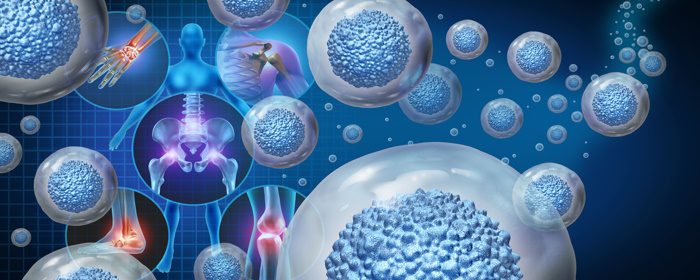

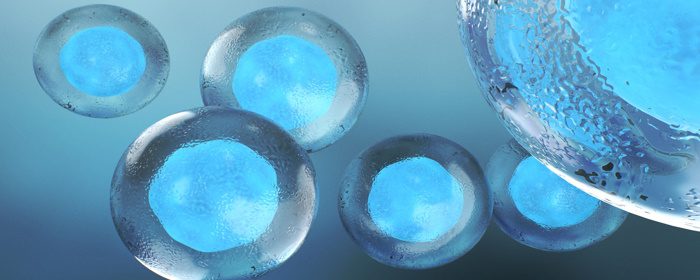
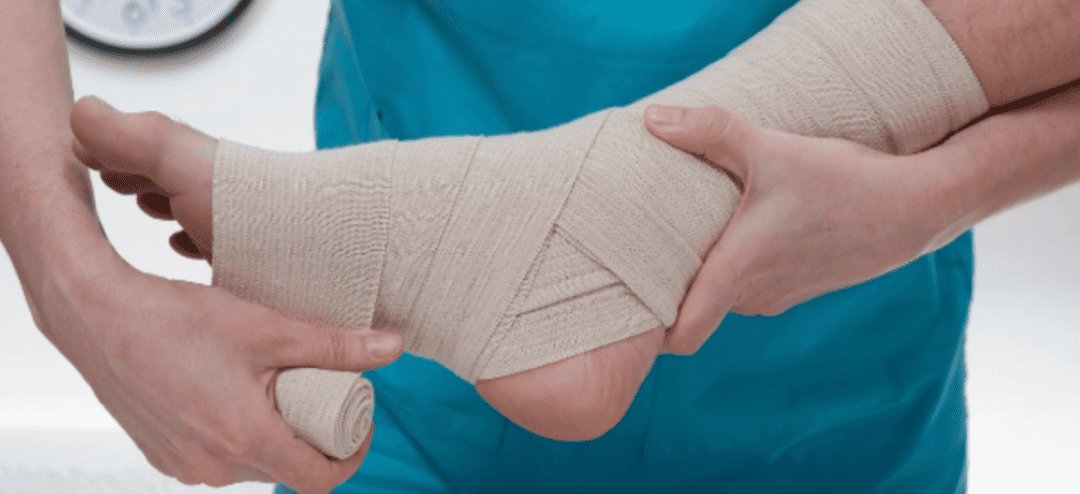
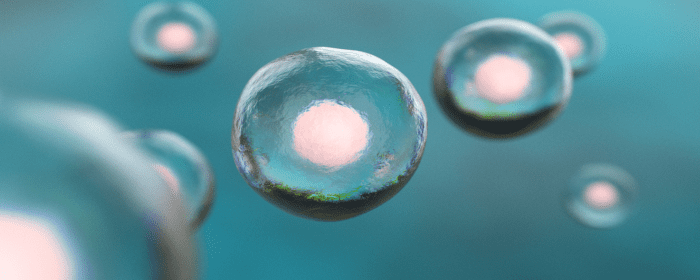
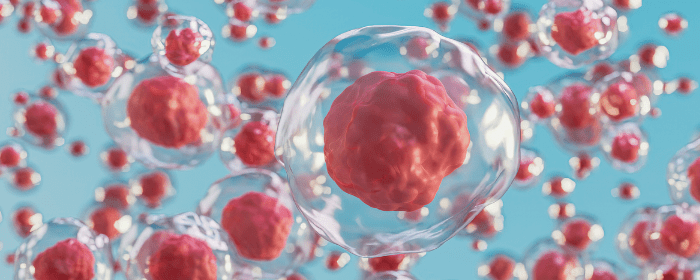
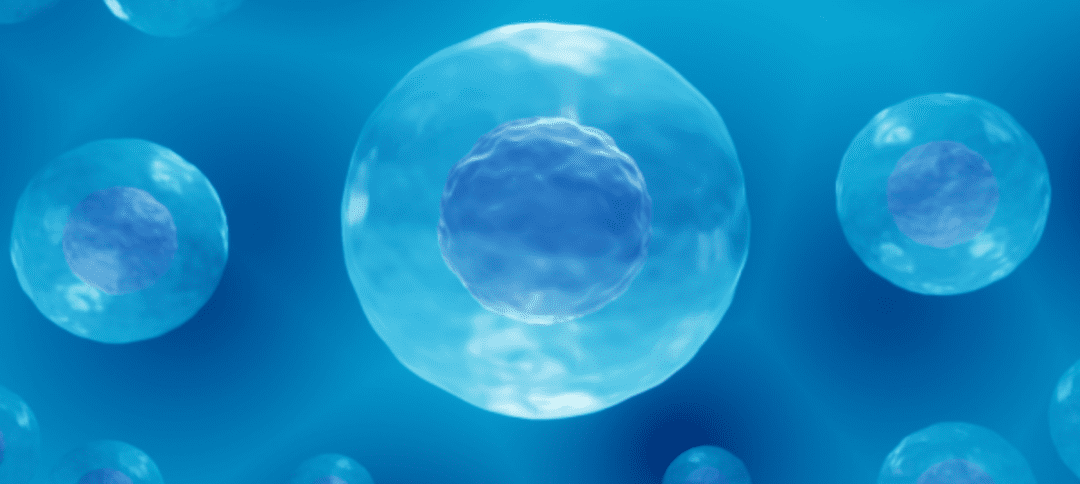
 St. Petersburg, Florida
St. Petersburg, Florida
